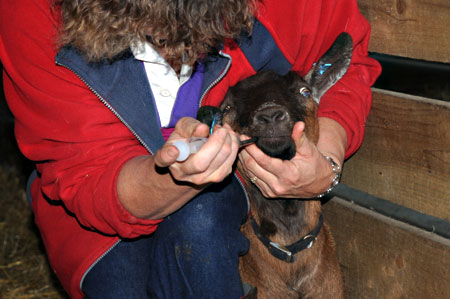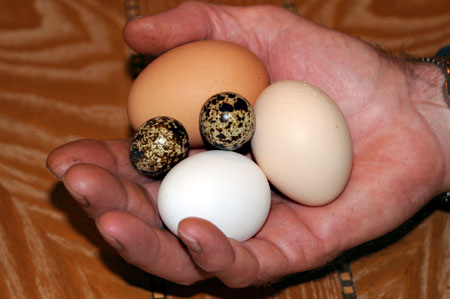Welcome to Relaxed Farming
- Alpacas
- Chickens
- Dairy Goats
- Ducks
- Geese
- Pigs
- Pygmy Goats
- Quail
- Rabbits
- Sheep
- Turkeys
- Polytunnel
- Photo Stories
- Video Stories
- Food
- Smallholding Map
- 2013
- 2014


- August
- September
- October
- November
- December
- January
- February
- March
- April
- May
- June
- July
- August


- 1
- 2
- 3
- 4
- 5
- 6
- 7
- 8
- 9
- 10
- 11
- 12
- 13
- 14
- 15
- 16
- 17
- 18
- 19
- 20
- 21
- 22
- 23
- 24
- 25
- 26
- 27
- 28
- 29
- 30
- 31
Monday, 2nd September 2013
After having the lamb with the mucky bum, our next task was to get a 'worm count' done. Sheep and goats and indeed humans, are susceptible to ingesting worms (through touching poo, not washing hands etc) which can then cause problems inside the body. As sheep eat grass, the chances of them picking up worms or the worms' eggs are high and the first sign that a sheep has a problem can often be a mucky back end. Worm counts involve examining the poo and seeing if it has any worm eggs inside it. Lovely job! Our vets were able to do this for us and they did find more eggs than is normal and so yesterday we gave all our sheep a worming solution that will hopefully kill off the worms/eggs inside them. This process is known as 'drenching', the idea being to get your syringe (or drenching gun) in the corner of the sheep or goat's mouth and then squirt the liquid over the back of their tongue and down their throat (as demonstrated here with Sage, one of our pygmy goats). The quicker you are the better. Nineteen squirts later and job done!! It is NOT advised to drench animals just in case they have worms, as a bit like with humans, over-use of drugs means they can become 'resistant' or 'immune' and then the drugs won't work.
On a slightly more pleasant note, huge excitement today as we found our first quail eggs inside the aviary. They may be small but they are beautiful!!

